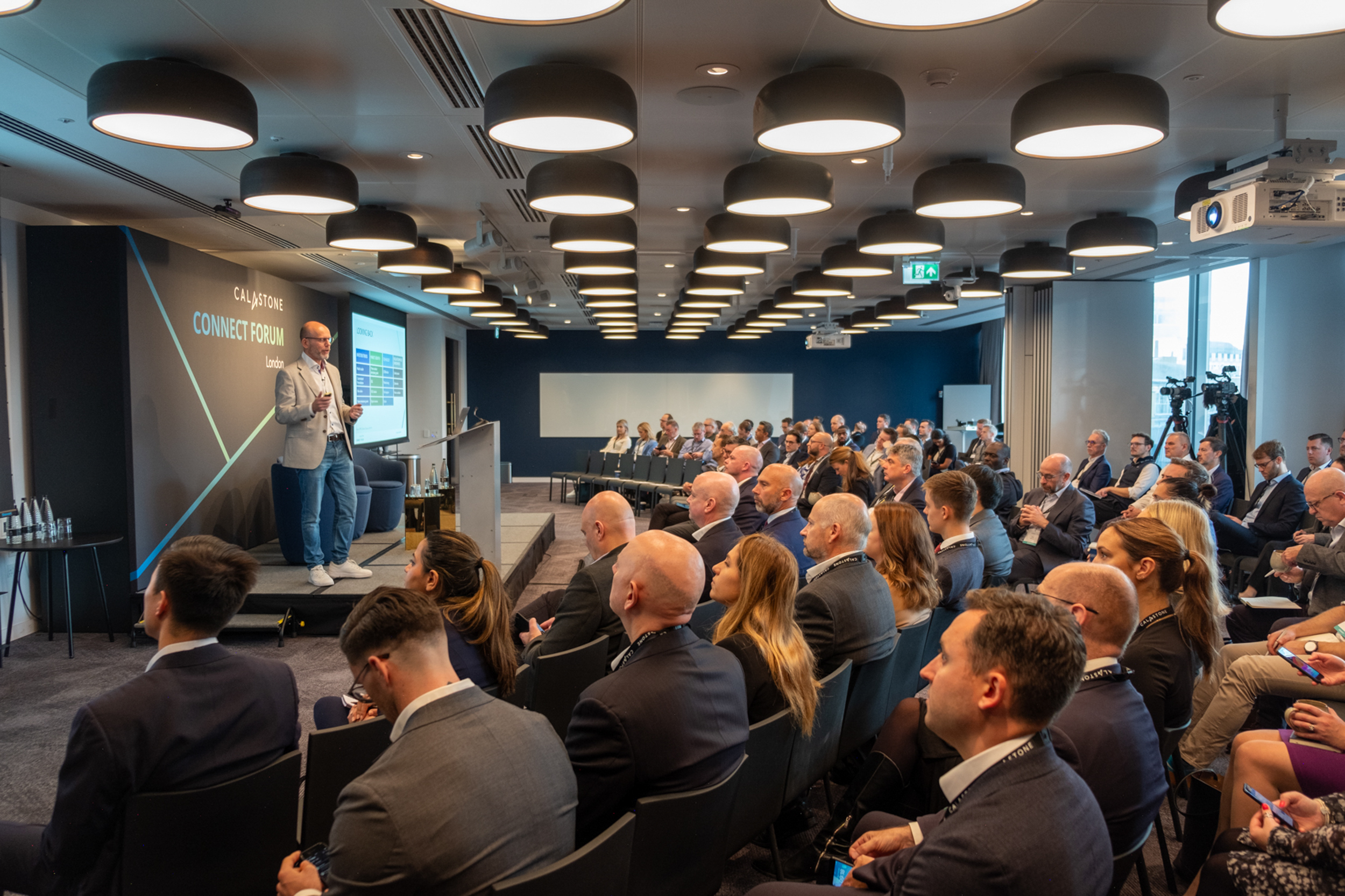The Asian funds industry is undergoing a period of fundamental change and challenge. This is a result of shifting investor demographics, rapid technological development, the emergence of technology firms and tightening regulation.
The expectation to conform to tougher regulatory standards is, arguably, the most demanding pressure currently experienced by asset management firms. This was demonstrated at the Calastone Connect Forum, held on 5 June in Hong Kong, where fund industry participants commented on regulation and its impact on technological progress.
In late 2017, the Hong Kong SFC (Securities and Futures Commission) released requirements for asset management firms to increase their levels of regulation. Similarly, the MAS (Monetary Authority of Singapore) is currently working with the ABS (Association of Banks in Singapore) to develop guidelines that would define technology risks facing the financial sector.
As a result, asset managers in Asia must now focus on meeting the regulatory requirements of the SFC and MAS, whilst adapting to, and introducing, new technology, to help remain competitive and relevant in the industry. This duality is proving complicated, as was discussed at the Connect Forum.
Technology: changing business models
Technology now has an immense impact on the financial industry. Asset managers, coming under margin pressure, have been changing their business models to be more client-centric. According to the panellists at the Connect Forum, technology is key to enhancing the investment process and to improving the experience of the next generation of clients, who are looking for easier ways to invest.
Calastone, in partnership with Funds Global Asia, conducted a survey on funds professionals, titled ‘The Impact of Technology and Regulation on Funds’. The research found that asset managers are generally slow to introduce new technology and, as a result, risk being surpassed by innovative firms and alternative investment models. Of those polled in the survey, only 21 percent considered asset managers efficient at adopting new technology.
Simon Wong, Managing Director at Fund Kernel, believes this is potentially due to fears of “risk and uncertainty”, prior to investing in updated technology. For example, there is scepticism over robo-advisers and how much they really serve investors’ needs. One of the reasons raised at the Connect Forum was that the majority of investors would still rather confer with a human, rather than base their investment decisions solely on an impersonal robotic app.
Similarly, legacy technology hinders asset managers’ innovation: 82 percent of those surveyed acknowledged that legacy technology is a problem, with over half agreeing that the back-office is the area most affected. This is largely because asset managers are reluctant to upgrade systems that, although outdated, are still functioning.
Regulation: a hindrance to progress?
Regulation further delays the progress. As Bill Maris, founder of Google Ventures, commented “We don’t make investment decisions based on regulation, we make them based on technology … the reality is regulation often lags behind innovation”.
Respondents to the survey believe this regulatory burden is rising. 93 percent of those surveyed agree that “the amount of effort required to comply with regulations in the funds industry has increased in the past year”. The time, money and effort spent on implementing MIFID II, or the standards of the SFC and MAS, could be deployed elsewhere. 73 percent of those surveyed agreed that regulatory compliance leads to under-investment in other parts of the business, with 67 percent believing that money allocated to regulation would be invested in technology if regulation cost nothing.
Millennial investors are increasingly looking for easier ways to invest in the fund; direct-to-consumer is expected to become the most important distribution channel in 10 years’ time. Major alterations to business models must occur to incorporate these developments and allow asset managers to remain competitive. However, the introduction of technology must happen at the right rate, as Caroline Higgins, Senior Vice President, Head of Global Fund Services, Asia, at Northern Trust, commented during a panel discussion at the Connect Forum. Companies cannot just suddenly be technologically developed. Too much change, without the appropriate measures in place, could do more harm than good and be to the detriment of clients’ needs.
The transformative impact of Blockchain
Euan McLeod, Managing Director, Head of Transfer Agency, APAC, at State Street Global Services, argues that blockchain will be the technology that “changes the business model”. Similarly, of those polled at the Connect Forum, a total of 81.1 percent said that blockchain is already on their radar. The industry needs to focus on hiring experts who understand the technology, like blockchain, and know how to deploy it from the beginning, or else they cannot adapt their business models. One of the respondents of the survey argues that “Technology is rapidly evolving. Unless we increase our focus on these developments, very quickly asset managers will lag behind”.
Another option for introducing technological development in the funds management industry is through partnership. A partner in the technology industry gives the funds firm access to innovation, without making significant investment and building proprietary technological systems. For example, BNP Paribas Asset Management acquired a majority stake in a robo-advisory investment firm, Gambit Financial Solutions, in 2017. However, eventually, firms could find this isn’t sufficient to keep pace with the developing demands of their clients.
The asset management industry therefore faces several challenges in adapting to an ever-changing technological landscape. The global findings in Calastone’s survey suggest an interesting binary: big tech companies, such as Google and Amazon, were ranked first for having the potential to be the most useful partners to asset managers, but also ranked first as having potential to be most disruptive.
Technology can certainly benefit asset managers, levitating administrative burdens, for example, but the industry must adapt with these changes, or risk being surpassed by innovative, contemporary technology firms. In conjunction with this, the industry must meet regulatory compliance, whilst maintaining a fundamental focus on their investors’ needs.
(First published in Regulation Asia on 25/07/18– https://www.regulationasia.com/technology-and-regulation-rapidly-reforming-the-funds-industry/)




















